[ad_1]
It’s been a tough yr for Michoacán, the state by which I reside. The state authorities has now introduced plans for cloud seeding, within the doubtful hope of manufacturing some March rains. Our grass and forest hearth season has already kicked in, some two months sooner than in regular years. And on Monday, February fifth, one thing extraordinary occurred: The Morelian skies turned brown with smoke from… a lake, that was on hearth.
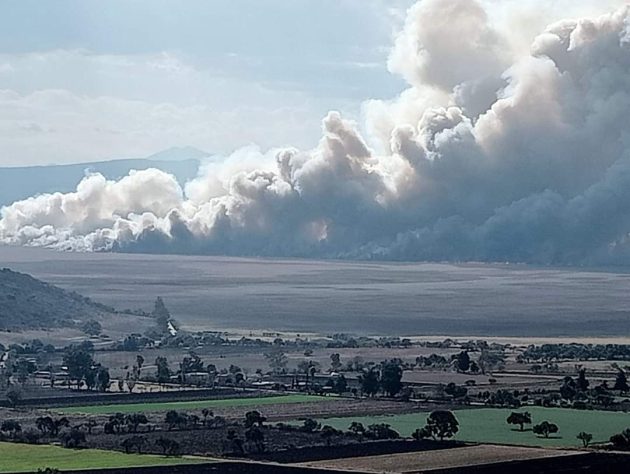
This picture, which was shared on a neighborhood birders’ WhatsApp group, reveals the big extension of burning reedbeds on that very windy day. And the big flat space within the foreground could seem like a lake stuffed with water, however I can guarantee you that it’s bone-dry.
In yr, Lake Cuitzeo is a serious wintering floor for tons of of 1000’s of waterfowl and shorebirds. And after visiting these birds repeatedly for the previous ten years, I take their scenario very personally. So it was irritating when journey and different obligations stored me from checking in on them in all through our very dry fall months. After I lastly may go, on February twelfth, I knew it will be ineffective to go to the world proven within the above picture. As a substitute, I went to the lake’s jap finish, the place most water flows into the basin, and a few water stays even within the driest of years. Would that also be true, this yr? And would these birds nonetheless be there, or had they been pressured to maneuver on?
It’s a one-hour drive to my start line of Araró, and the highway past that city is a tiresome hybrid of asphalt and potholes. So I used to be very grateful to see that my efforts had paid off. The realm west of Araró does certainly maintain a remnant lake, as of February of 2024. (A current native information article says its present most depth is 60 cm/2 toes, though I didn’t take a look at this assertion.) And this remnant lake could be very, very birdy:
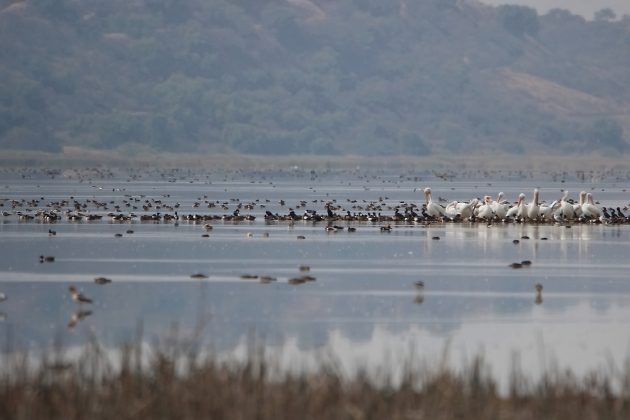
The dominant birds, in addition to these American White Pelicans seen on the proper, had been Northern Shovelers — tons of of them. This was encouraging, as a result of I had not too long ago seen Blue-winged Teals, Inexperienced-winged Teals, American Wigeons, Gadwalls and Canvasbacks on smaller our bodies of water within the space, however these had been my first Shovelers for the season. And after I bought dwelling, images I had taken of a flock flying overhead revealed Northern Pintails, one other beforehand missing-in-action species.
I had not anticipated to find out the whereabouts of a a remaining duck species, the cute Ruddy Duck. I usually see Ruddy Geese on the lake’s deepest waters, and as I stated, there are no deep waters within the Lake Cuitzeo proper now. However at dwelling, I used to be capable of manipulate a couple of images of the closest mid-lake waterfowl, and people revealed the two-toned faces of winter Ruddy Geese. It’s so good to see all my previous pals are nonetheless round.
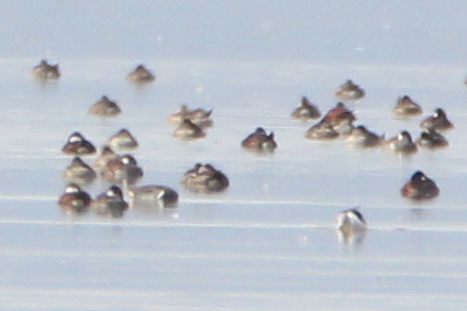
In passing, I ought to point out that winter Ruddy Geese are cute, however it’s the summer season male that earns them the phrase “cute”. “Goofy” and “designed by committee” would work, too:
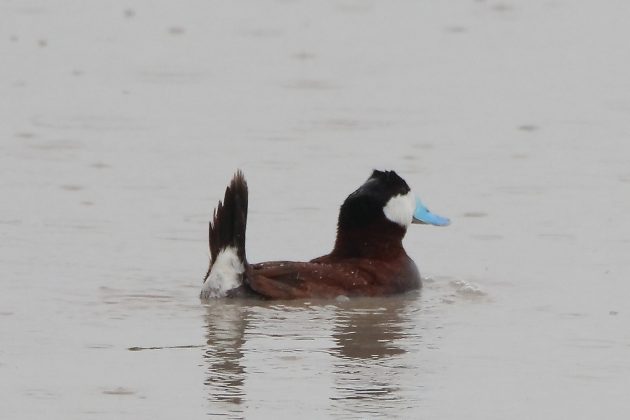
Previous to this journey, my 2024 scenario for shorebirds appeared even worse that the scenario for waterfowl. Actually, the one shorebirds I had seen in different websites had been Killdeer, which may happen removed from water, and the Noticed Sandpipers that had turned up round smaller our bodies of water. However the remnant of Lake Cuitzeo appeared to have many, if not most, of the opposite regular winter shorebirds for our area. There have been a lot of Western and Least Sandpipers, as one would hope. American Avocets and Black-necked Stilts additionally take pleasure in shallow water, in order that they had been plentiful. However there was additionally a good variety of Lengthy-billed Dowitchers and Stilt Sandpipers, two similar-looking species that I wasn’t positive I’d see. Better of all, I bought to take pleasure in 5 implausible Lengthy-billed Curlews.
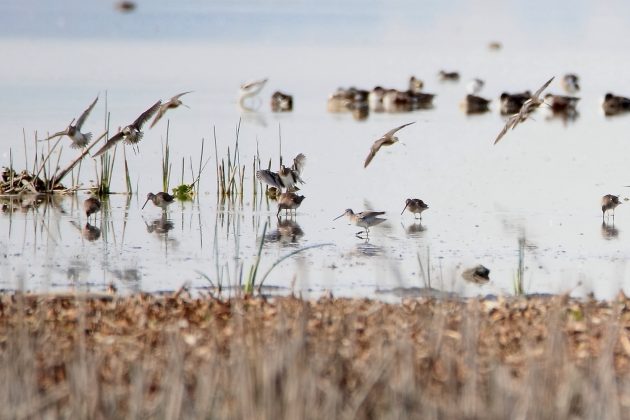
Lengthy-billed Dowitchers
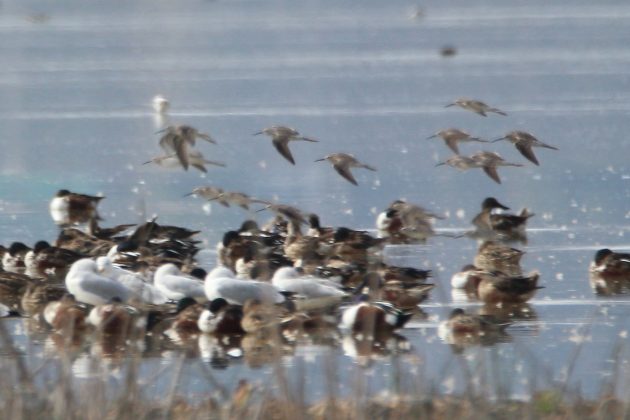
Stilt Sandpipers, flying above Ring-billed Gulls and Northern Shovelers
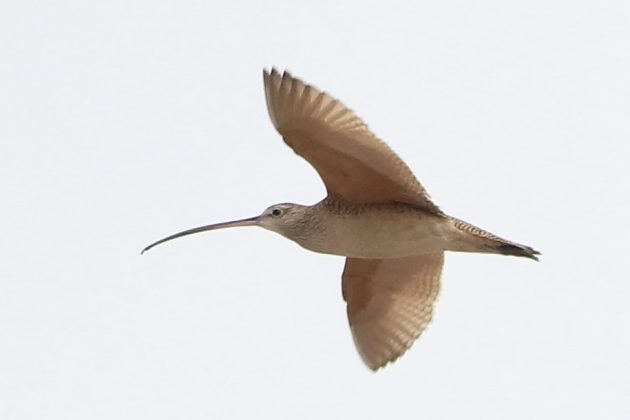
A type of Lengthy-billed Curlews, caught in flight
In fact, there have been additionally Coots, Gulls, Terns, and plenty of Herons and Egrets round. Nevertheless it was two extra species that made my day full. On my method dwelling, I made a decision to drive by Lake Queréndaro, a mid-sized lake to the south of Lake Cuitzeo. This lake is usually choked with Water Hyacinth, and infrequently gives greater than American Coots, Pied-billed Grebes, and a group of Grebes and Herons. However this time, the Water Hyacinths had been largely cleared away, simply in time for the lake to be the one supply of deeper water for a lot of miles round. Which meant that the Clark’s Grebes, now absent from Lake Cuitzeo had a spot to remain:
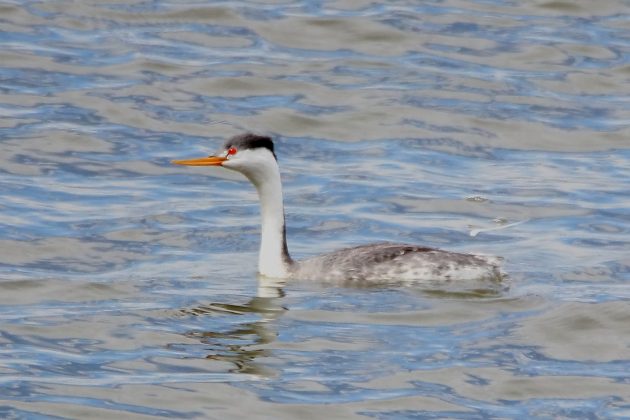
And as a closing deal with, whereas standing on a bluff overlooking Lake Queréndaro, an American Bittern flushed from the shore just under, and flew so shut that I barely managed to focus my digicam earlier than it disappeared in crops a bit farther alongside. It is a chicken that loves to remain hidden, so it was an incredible encounter. I solely managed one well-focused shot, nevertheless it’s one.
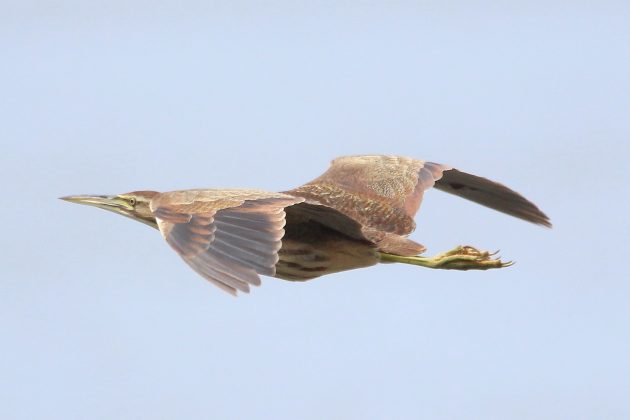
Subsequent week, I’ll present you a number of the extra terrestrial birds which can be additionally discovering a option to survive my lake’s partial disappearance.
[ad_2]